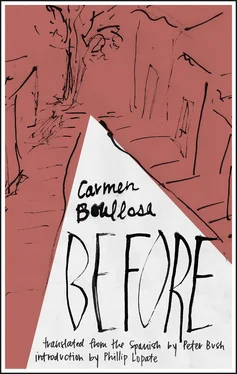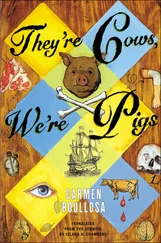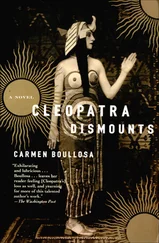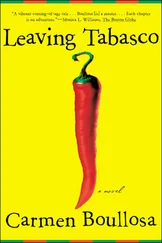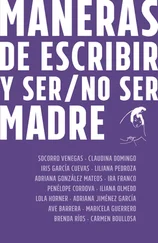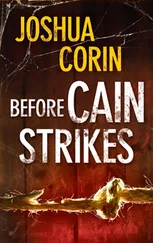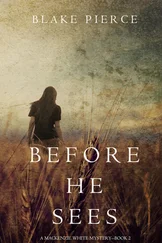Carmen Boullosa - Before
Здесь есть возможность читать онлайн «Carmen Boullosa - Before» весь текст электронной книги совершенно бесплатно (целиком полную версию без сокращений). В некоторых случаях можно слушать аудио, скачать через торрент в формате fb2 и присутствует краткое содержание. Год выпуска: 2016, Издательство: Deep Vellum Publishing, Жанр: Старинная литература, на английском языке. Описание произведения, (предисловие) а так же отзывы посетителей доступны на портале библиотеки ЛибКат.
- Название:Before
- Автор:
- Издательство:Deep Vellum Publishing
- Жанр:
- Год:2016
- ISBN:нет данных
- Рейтинг книги:4 / 5. Голосов: 1
-
Избранное:Добавить в избранное
- Отзывы:
-
Ваша оценка:
- 80
- 1
- 2
- 3
- 4
- 5
Before: краткое содержание, описание и аннотация
Предлагаем к чтению аннотацию, описание, краткое содержание или предисловие (зависит от того, что написал сам автор книги «Before»). Если вы не нашли необходимую информацию о книге — напишите в комментариях, мы постараемся отыскать её.
Part bildungsroman, part ghost story, part revenge novel,
tells the story of a woman who returns to the landscape of her childhood to overcome the fear that held her captive as a girl. This powerful exploration of the path to womanhood and lost innocence won Mexico's two most prestigious literary prizes.
Carmen Boullosa
Texas: The Great Theft
Before — читать онлайн бесплатно полную книгу (весь текст) целиком
Ниже представлен текст книги, разбитый по страницам. Система сохранения места последней прочитанной страницы, позволяет с удобством читать онлайн бесплатно книгу «Before», без необходимости каждый раз заново искать на чём Вы остановились. Поставьте закладку, и сможете в любой момент перейти на страницу, на которой закончили чтение.
Интервал:
Закладка:
Don Alfredo wrote poems. One was to the weeping willows that could be seen from the terrace, others to the village where he had lived as a child. He’d been married to a Jewish woman, had separated (nobody ever said divorced in my house) at some time or another. He’d had a daughter by her who must be (or so Dad reckoned) more or less Esther’s age.
My sisters and I ran on the grass, played cards, snakes and ladders, Monopoly, went in and out of the pool…did everything we could to break the thin veneer of tranquility over the place. The hotel never seemed to have guests. At night, although I alerted my practiced ear, like a bell in the darkness, only the wind could be heard, when there was one.
Nothing ever happened in Los Amates. That was guaranteed and that’s probably why Esther chose it (underestimating the importance of her friendship with Don Alfredo). Nothing happened, nothing ever happened. Even the sun which at midday elsewhere in Cuernavaca seemed to burn down in a searing shaft of light, here its rays were bland, soft, askew, apparently fortuitous. But those three days a character turned up who was a stranger to our world, a girl Malena’s age but already a woman, and I mean a woman gone rotten, not a mature woman: sad and perfumed like an overripe fruit, her eyes painted as if they’d spent more than enough time in front of the mirror, she smoked and her tender thirteen-year-old body wore her womanly attributes like trophies (I don’t mean the trophies of big game-hunters but trophies as in atrophied parts ): her breasts, long legs, waist, which at thirteen still hadn’t taken shape, corresponded to those of a slightly overweight woman, not the uniformity befitting a girl’s body. She wanted the world to believe she was a frustrated woman, when she was in fact rather a frustrated girl , a girl not kissed or caressed by her mom. (In the hotel parking lot I heard people say “She’s the drunkard.”) Over with before she’d grown up, she seemed to be searching: in fact she didn’t want to find anything because she thought there was nothing to find, not even death.
One midday I went over to her while she was painting her nails irritably, like a woman bored and overfamiliar with the routine. I looked closely at her hands, muttered something or another and saw hands covered in varnish and her carelessly painted nails: she dabbed here and there, never quite hitting target.
“What are you doing?” I asked her.. “You’re not doing it right.”
She stared at me, her beady eyes seemingly unable to focus on anything.
“Do you know what my name is?”
“Yes.”
“And you do know what word’s like my name, don’t you?”
I didn’t dare say no. Now, as I can’t remember, it doesn’t mean anything to me. Then she told me a joke about Christ on the cross and the Mary Magdalene woman doing something I didn’t understand, and I didn’t realize it was supposed to be amusing, and after laughing and forcing me to laugh with her, that look that transfixed me (a mongrel’s, a roach’s, a shitty fly’s), she said: “What do you know? You shouldn’t even be asking me why I paint my nails that way, or can’t you guess?”
If I didn’t dare confess to her that her joke hadn’t passed through the window of what my parents called my innocence , I did confess I didn’t know why she made such a mess of painting her nails. “Don’t you get it, or what?” She answered that it was — I can’t remember the word she used— to deceive, so her hands couldn’t be recognized, or that’s what I understood, and I asked:
“Why don’t you want to be recognized?”
Then she took hold of both my wrists and, pulling me toward her, raised her right hand and placed it on my girlish nipple, pushing aside my swimsuit to touch my skin. Gently pinching my nipple, she told me on the mouth, mouth to mouth, like a kiss of words: “I’m doing what I can to be saved.” She separated herself from me.
My swimsuit strap had slipped off, I looked down and saw on my breast the red mark of nail varnish, over my heart, a new — brutal, painful — stigmata. Not one I wanted to preserve. I threw myself into the water and swam till no trace was left on my breasts of the red welt of pain left by her rough caress.
At the time the road from Mexico City to Cuernavaca seemed endless. Now, looking back, I realize it was short and easily definable. On that occasion when I traveled back, with Esther driving and the three of us happy to be going home, we all four sang while I thought: “What was she trying to tell me? What must she save herself from?” I took the mirror from Esther’s handbag and looked at my face: dark eyes, clean skin, a face not like hers. Should I paint my nails?
I asked Esther: “Hey, Esther, will you paint my nails when we get home?”
“Little girls don’t paint their nails.”
“I don’t know if they do, Esther, but I want to paint mine.”
“It’s not right.”
“It’s just…”
“No.”
When Esther said “no” she managed to convince us more efficiently than any authoritarian mother, without making us lose face. “It damages the cuticles. And looks ugly. The varnish doesn’t allow the nails to breathe. It’s uncomfortable. It looks cheap. No.”
And I said with her: “No, I shouldn’t paint my nails.”
As soon as we got home, I persuaded Malena to come and collect more pebbles from our neighbors’ window box. I say persuaded because they were tired of the pebbles, and infatuated with a microscope for which they spent hours and hours gutting and slicing all there was to gut and slice and the stones, as they weren’t looked at through a microscope, were no longer of interest.
They’d brought wonderful booty from Cuernavaca to dye and observe for days, and that’s all they seemed interested in.
As generous as ever, Malena alone accompanied me, but. unfortunately for me, the trip was to no avail. The neighbors had removed the pebbles from their window box and taken away the earth and plant which decorated it.
A couple of construction workers were putting up scaffolding to drastically reshape what was quite a horrific façade.
I asked them about the pebbles. “Which ones?” they answered. Malena described them and they shrugged their shoulders, said they didn’t have a clue. I went home distressed and fearful, while Malena tried to persuade me it wasn’t so important and rehearsed the delights we’d see under the microscope.
Nighttimes sharpened their nails, returned to mock and pursue me.
I only had to close my eyes (not even go to sleep) and the noises and steps tormenting me increased in volume. Nothing could replace the protective impact of the pebbles. I tried various substitutes and was scolded for spilling hair cream, moth balls, rubber…I also set up a line of straws, biscuits, and my skates next to my sisters’.
All to no avail.
7
Grandma’s telephone number was 16-19-50. Our house’s was much simpler: 20-25-30. The numerical irregularity of Grandma’s must be the reason why we always got it wrong when we tried to remember it, whether it was the housemaids, my sisters, or yours truly, who always thought she had a good memory. My sisters also vehemently maintained you had to look up Grandma’s number in the yellow pages, which was always the preserve of businesses, industry, professionals, services, and products, while the white section was for private individuals. The vehemence with which my sisters defended consulting the yellow pages was due to a television advertisement, made with cartoons, as if for children.
The advertisements were enigmatic. While a female chorus sang “ consult (they paused here) the yellow pages ” a single dramatic line linked Chinese restaurants with Quaker oats or any other chance coupling of elements, and their animated figures urged us to get the yellow pages, to use them whenever we had any telephone query though the extremely thin pages crumpled on hand contact, screwed up, tore. The commercials were not aimed at children and it was no surprise if their message went over our heads; nor did I ever understand the caricatures of Felix the cat, or — even less so — the tirades from a character called Chabelo, played by a big, fat adult actor, disguised as a child in shorts and Spanish-style sailor shirt, whining like a spoiled brat, showing off something that to my girlish eyes one should conceal at all cost even at the risk of seeming fatuous: stupidity. It wasn’t just his dreadful patter, it was also the way he spoke, the clothes he wore…I didn’t want to appear gauche and ridiculous like poor old Chabelo: this television anti-hero re-prioritized our longings, displaying the worse excesses of kids (he even belched in public!). If we watched him it was because he represented the defenseless child who could defend himself (because of his size), the silly kid who was loved because he was just that…It had nothing to do with any promised, sought-after world, I didn’t think of him as nice, nor did I understand him, but, like many other children, I felt for his immense vulnerability and extraordinary flab that pore by pore said I’m a kid, I’m silly and want to be loved, and if you don’t love me I’ll give you a thump .
Читать дальшеИнтервал:
Закладка:
Похожие книги на «Before»
Представляем Вашему вниманию похожие книги на «Before» списком для выбора. Мы отобрали схожую по названию и смыслу литературу в надежде предоставить читателям больше вариантов отыскать новые, интересные, ещё непрочитанные произведения.
Обсуждение, отзывы о книге «Before» и просто собственные мнения читателей. Оставьте ваши комментарии, напишите, что Вы думаете о произведении, его смысле или главных героях. Укажите что конкретно понравилось, а что нет, и почему Вы так считаете.
